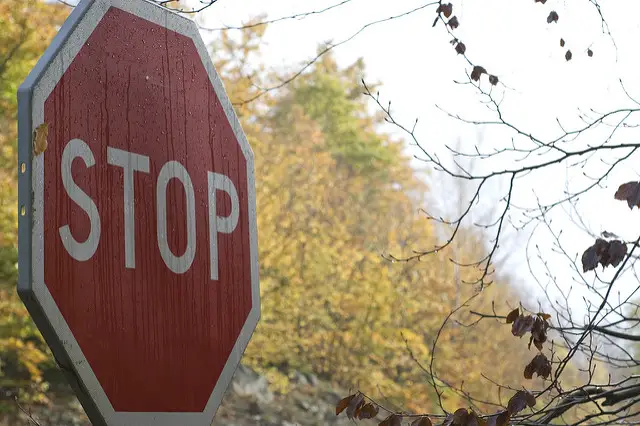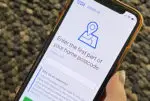Baroness Dido Harding, the head of the Test and Trace Programme has confirmed the Contact Tracing App that has been trialed on the Isle of Wight for the past six weeks is being scrapped.
In a media briefing this afternoon (Thursday), Baroness Harding said the pilot on the Isle of Wight had taught the team “a huge amount”, adding that it had been an important companion through the ‘test, trace and isolate’ journey.
Working with Google/Apple
Rather than continue developing the centralised version, the NHSX team will be working with Google/Apple.
“Their framework is better,” Baroness Harding said.
However, she added the NHSX App was better at calculating distance better than that the Google/Apple framework, so all teams would be joining efforts to develop and App using the Google/Apple framework, with the distance calculation learnings from the Island. A date for release was not given.
Next phase of NHS coronavirus (COVID-19) app announced
Below is the official release from the Government. Ed
This next phase will bring together the work done so far on the NHS COVID-19 app and the new Google/Apple framework.
Following rigorous field testing and a trial on the Isle of Wight, we have identified challenges with both our app and the Google/Apple framework.
This is a problem that many countries around the world, like Singapore, are facing and in many cases only discovering them after whole population roll-out.
As a result of our work, we will now be taking forward a solution that brings together the work on our app and the Google/Apple solution. This is an important step, allowing us to develop an app that will bring together the functionality required to carry out contact tracing, but also making it easy to order tests, and access proactive advice and guidance to aid self-isolation.
NHS Test and Trace is already working to stop the spread of coronavirus and save lives. Building on our previous work, data published today (18 June) shows that tens of thousands more people who may have otherwise unwittingly spread the virus are now remaining safely at home.
Joint statement from Baroness Dido Harding, Executive Chair of NHS Test and Trace and Matthew Gould, CEO, NHSX:
3 weeks ago we launched NHS Test and Trace as a brand new, end-to-end service, to help control the spread of COVID-19 and we are hugely grateful for the way the public have responded to protect those around them.
Our ambition is to develop an app which will enable anyone with a smartphone to engage with every aspect of the NHS Test and Trace service, from ordering a test through to accessing the right guidance and advice. This will support our vision of helping more people get back to the most normal life possible at the lowest risk.
Our response to this virus has and will continue to be as part of an international effort. That is why as part of a collaborative approach we have agreed to share our own innovative work on estimating distance between app users with Google and Apple, work that we hope will benefit others, while using their solution to address some of the specific technical challenges identified through our rigorous testing.
We will also draw on the invaluable insight from all of those who trialled the app on the Isle of Wight – and the brilliant teams who have worked on it to date – to build an app that can form part of the end-to-end NHS Test and Trace service, and this insight will be integral to the next phase of development.
Crucially, NHS Test and Trace is already playing a vital role in helping us stop the spread of the virus. We will keep learning, improving and refining to build a high-quality service on which all of us can depend and to have the right technology in place.
Health and Social Care Secretary Matt Hancock said:
Our approach to the virus, whether that’s on vaccines, testing, treatments or cures, has been that we are willing to back innovative solutions and to be ambitious.
We knew from the start that we would need to test and learn as we developed this new technology. The NHS COVID-19 app has undergone some of the most rigorous testing in the world – utilising a real world trial on the Isle of Wight pilot and in a series of field tests – and I want to thank all of those involved.
As we enter this next phase of research and development we remain determined to continue in our ambition to develop an app which meets the technical, security and user needs of the public and which can complement the NHS Test and Trace service.
Countries across the globe have faced challenges in developing an app which gets all of these elements right, but through ongoing international collaboration we hope to learn, improve and find a solution which will strengthen our global response to this virus.
Background information
International evidence shows the importance of a comprehensive human contact tracing service underpinned with a huge, nationwide testing capacity which is now available through the NHS Test and Trace service. Any future app would complement this service.
Alongside the launch of this end-to-end service, extensive testing of a new contact tracing app has been undertaken, building on the initial trial phase on the Isle of Wight with a series of field tests to develop a viable product which could be introduced nationally.
Rigorous field testing is an integral part of any project of this scale and ambition and the focus has been on identifying solutions to the issues which have emerged.
Through the systematic testing, a number of technical challenges were identified – including the reliability of detecting contacts on specific operating systems – which cannot be resolved in isolation with the app in its current form.
Google/Apple’s announcement that they would make their application programming interface (API) available, if a number of conditions were met, allowed exploration of how our technology could work alongside their solution to begin, while also closely following the latest international evidence.
While it does not yet present a viable solution, at this stage an app based on the Google/Apple API appears most likely to address some of the specific limitations identified through our field testing. However, there is still more work to do on the Google/Apple solution which does not currently estimate distance in the way required.
Based on this, the focus of work will shift from the current app design and to work instead with Google and Apple to understand how using their solution can meet the specific needs of the public.
Islanders thanked for trialling contact-tracing app technology
News shared by Isle of Wight council press office. Ed
Islanders have today (Thursday 18 June) been thanked for the vital role they played in the development of contact-tracing app technology.
As the government announces the end of the NHS Covid-19 app trial, health secretary Matt Hancock said the feedback provided by Island residents would play an ‘integral’ part in the next phase of development.
He said:
“A huge number of people on the Island have dedicated time to this project and we are hugely grateful.
“Residents on the Isle of Wight have led the way and the feedback from Islanders will remain at the heart of our approach going forward.”
When Mr Hancock called on Islanders to lead the way in the development of the pioneering technology, more than 54,000 responded by downloading the app.
It has since played an important role in speeding up the time it takes to trace the contacts of those diagnosed with the virus, allowing them to isolate more quickly before they have the chance to spread it to others.
Isle of Wight Council leader, Dave Stewart, said he had no doubt that the enthusiasm with which residents had approached the project had played a real part in helping to keep the rate of infection low on the Island.
He said:
“I have been overwhelmed — but not surprised — by the Island community’s willingness to lead from the front in the war on coronavirus, playing a vital role in the development of contact-tracing app technology.
“The valuable insight gained from trialling the app here will go on to inform the design of future developments which, I am sure, will lead to many lives being saved.
“To every Islander who downloaded the app, I would like to extend my own personal thanks and gratitude.
“The app project provided us with an opportunity to take part in something groundbreaking which would help protect the Island and the community — something which, I believe, it has achieved.
“We should also not forget that the app was just a small part of the wider NHS test and trace programme which has now launched nationally and which provides end to end testing and contact tracing.
“As we look to the future and the gradual easing of lockdown restrictions, we will continue to identify innovative ways in which to keep our community safe.”
Islanders are being told they can now uninstall the app from their mobile phones.
Isle of Wight Conservative MP, Bob Seely, said:
“I am sad at the decision not to proceed with the app, but the important thing is that the Island played its role in testing the app. It was a trial. The point of a trial is that we get to see if the app worked or not.
“The Island played its part well and most importantly proved its worth as a partner with central Government.
“I want to thank everyone who downloaded the app and who contributed. We played our part in the test. That’s all we could do, and we did it. The Island provided invaluable feedback to the NHS which has informed the future approach and direction of research.
“There have been in the past year, four national trials in which the Island has had an important role. First, the use of high-tech to push forward plans for telemedicine, second the use of drones to support St Mary’s Hospital, third, the trace and test app, and fourth, use of steroids to treat Covid-19.
“At least three out of those four pilots were, or are being, successful, and even the app has been worthwhile in terms of informing next steps.
“I understand that elements of the app have worked well. It was good at measuring distance and Islanders like the idea of a companion app, helping to report symptoms. It may have caused some suppression of the virus, as indicative figures last week showed. It worked well on Android phones. However, the app was very poor at picking up iPhone interactions.
“I understand that the Google/Apple app also has flaws, especially at measuring distance, but we I suspect have little choice but to work with Apple since the app will have to work on their phones.
“I will continue to champion the Island as the right place to pilot schemes. I will do so because we need to get the Island at the front of the queue, not the back, where we have been for too long. I am unapologetic about this.
“Once again, thank you to Islanders for their support for the app project.
“I also want to thank NHSX for all the good work that they have done in trying to make this app a success. We should remember that they have been absolutely focused on protecting the public.”
Article edit
4pm 18th June 2020 – Government release added
4.15pm 18th June 2020 – Council release added
5.05pm 18th June 2020 – Seely comment added
Image: misteraitch under CC BY 2.0





